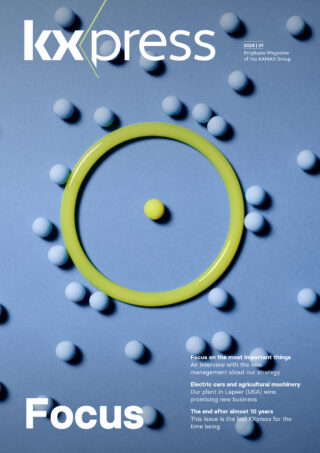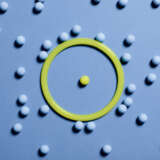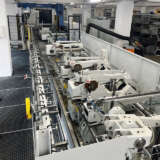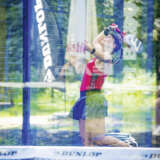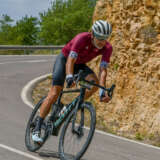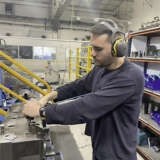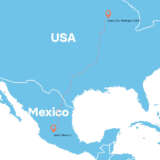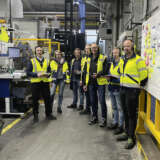“Padeling” on land
Whenever engineer Claudia Pöggeler-Ribas tells people that she’s off to play padel, she’s generally met with incomprehension. What in the world is she talking about? Pöggeler-Ribas is actually off to a court measuring ten by 20 meters surrounded by glass walls where she is engaging in spectacular rallies. In fact, in October 2023 she was part of the German national team at the European Padel Championships in Lisbon.
Padel (also known as padel tennis) is still a very young sport, having been created less than 60 years ago, but it is one of the fastest growing sports in the world. It was about five years ago that Claudia first held a foam-filled carbon racket in her hand. “I grew up in Spain, so I was already familiar with padel. When I came to Cologne in 2018 to get my master’s degree, the sport was enjoying a real boom here, so when a few courts were offered by the university, I seized the opportunity,” reports Pöggeler-Ribas, who started out at KAMAX as a trainee. Thanks to her training and ambition, she quickly scored her first victories in competitions, telling us that “padel is a very good sport for beginners. Besides, I used to play tennis with my dad, and that really helped me get started.” This athlete quickly made a name for herself in Germany’s small padel community (where some 2,000 men and women are currently playing in competitions), delivering impressive performances in talent-scouting tournaments and – with a bit of luck – punching her ticket for the 2021 European Padel Championships in Bilbao. Two years later she earned a spot in the European Padel Championships in Lisbon, where she and her team finished in seventh place.
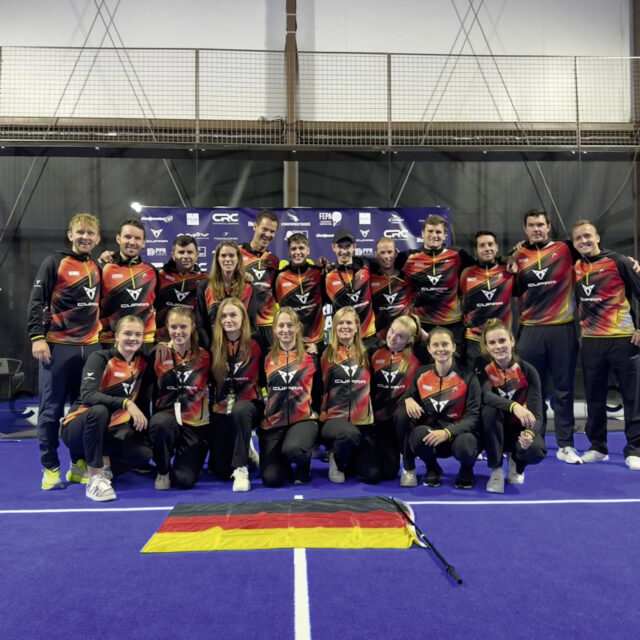
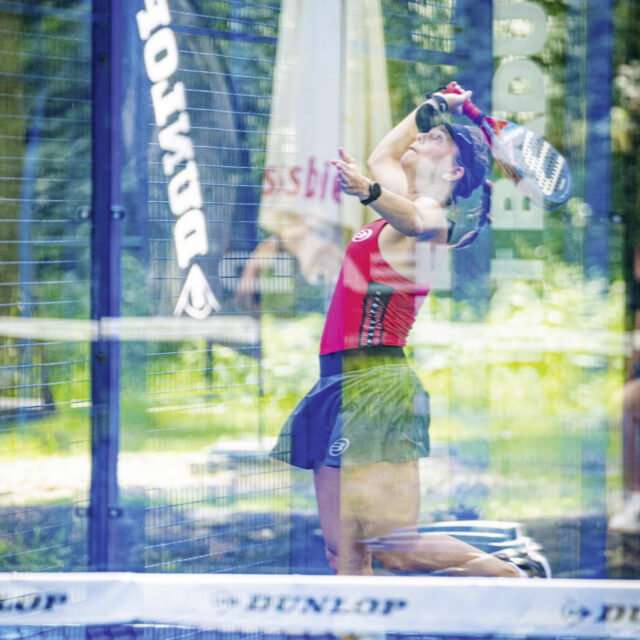
What is it that makes the sport so appealing to her? Claudia: “I love the rallies – they’re often very long and quite spectacular, because you’re allowed to play the balls off the glass walls.” Padel is also a very social game, as it is a doubles sport. Everyone knows one another, and the community is really important. Claudia Pöggeler-Ribas and her Cologne-based club, TC Weiden, compete in the “Padel Bundesliga,” Germany’s national padel league. Her team were German champions in 2022. She regularly travels throughout Germany to compete in tournaments, and she has traded shots with her colleagues in Valencia (Spain) and Homberg (Germany) as well. “I’m always delighted when I find people who want to give the sport a try, but be careful: it’s pretty addictive,” says Claudia with a smile.
More about padel
Padel was invented in Mexico in 1965 when Don Enrique Corcuera did not have enough room to build a tennis court, and instead built half of one. Because his half-size court was bordered by concrete walls, players quickly took to playing balls off them in their matches. In 1974, the sport made its way to Spain, where today it is second only to soccer. Padel is also popular in many countries of South and Central America, and in recent years it has begun to spread in Northern Europe as well. The score system is the same as for tennis, with one exception: when the game is tied 40:40 in padel, the winner is decided by a “golden point.”
Today the engineer lives in Marburg (Germany) and works as part of the Innovation Hub team in Homberg. Two padel courts have recently been built nearby, allowing her to spend more time on her hobby. She is careful to keep her own skills in perspective: “I’m not a world-class player. Padel’s simply not a big enough sport in Germany. At the same time, making the national team was great motivation.” When asked about her biggest success, she laughs and responds that: “My biggest successes are the times when I’m able to gain a new fan of the sport.”
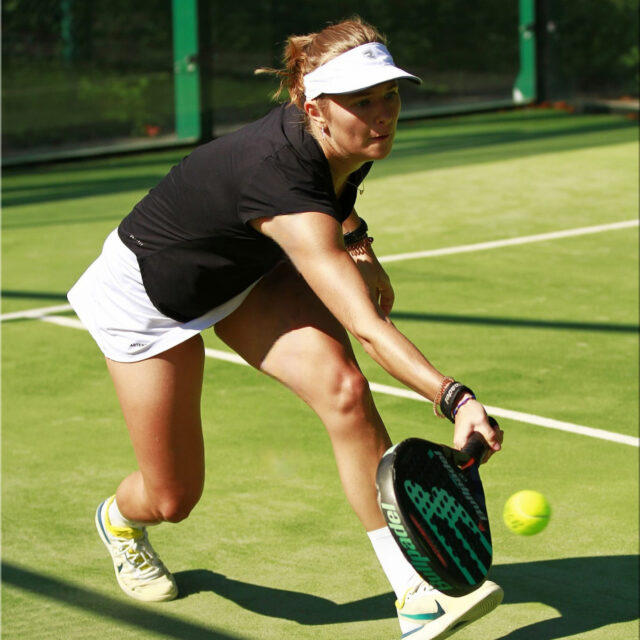
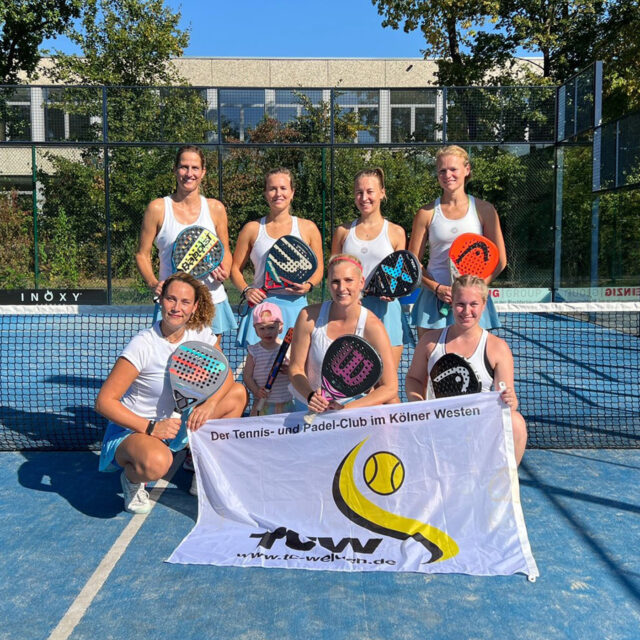
KXpress
